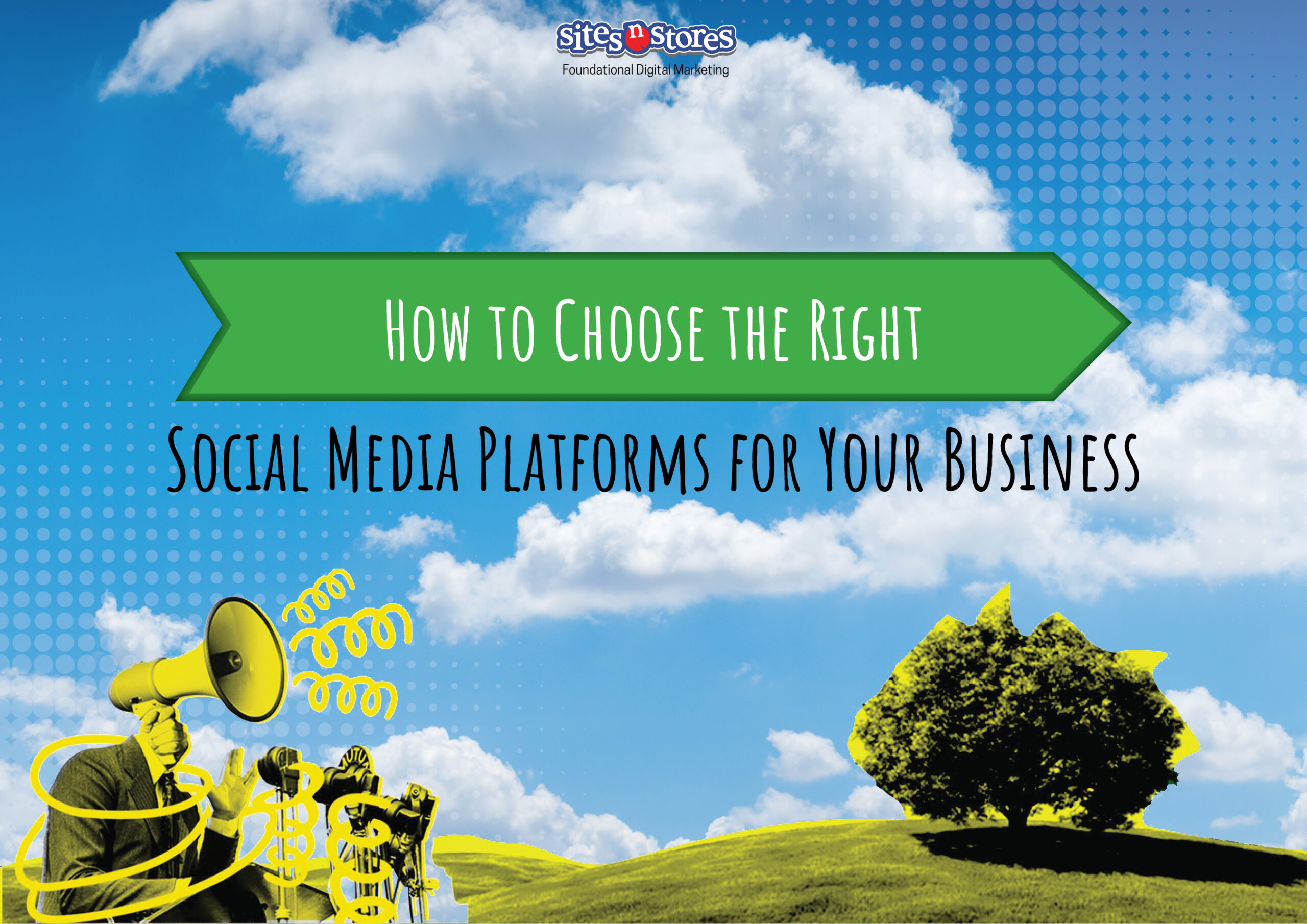Social media has become the beating heart of modern marketing for small businesses. It doesn't matter if you're the neighbourhood bakery or the boutique fashion store, the right social media strategy can make an indelible mark, fostering community, and enhancing brand loyalty.
But we know that social media can be a scary beast to tackle, and with a wide array of available social platforms, it can be daunting when you often have limited resources and time to invest.
This comprehensive guide is your one-stop-shop for figuring out which social media platforms best align with your business objectives, and how it can build brand reputation with your current customers and connect you to new ones!
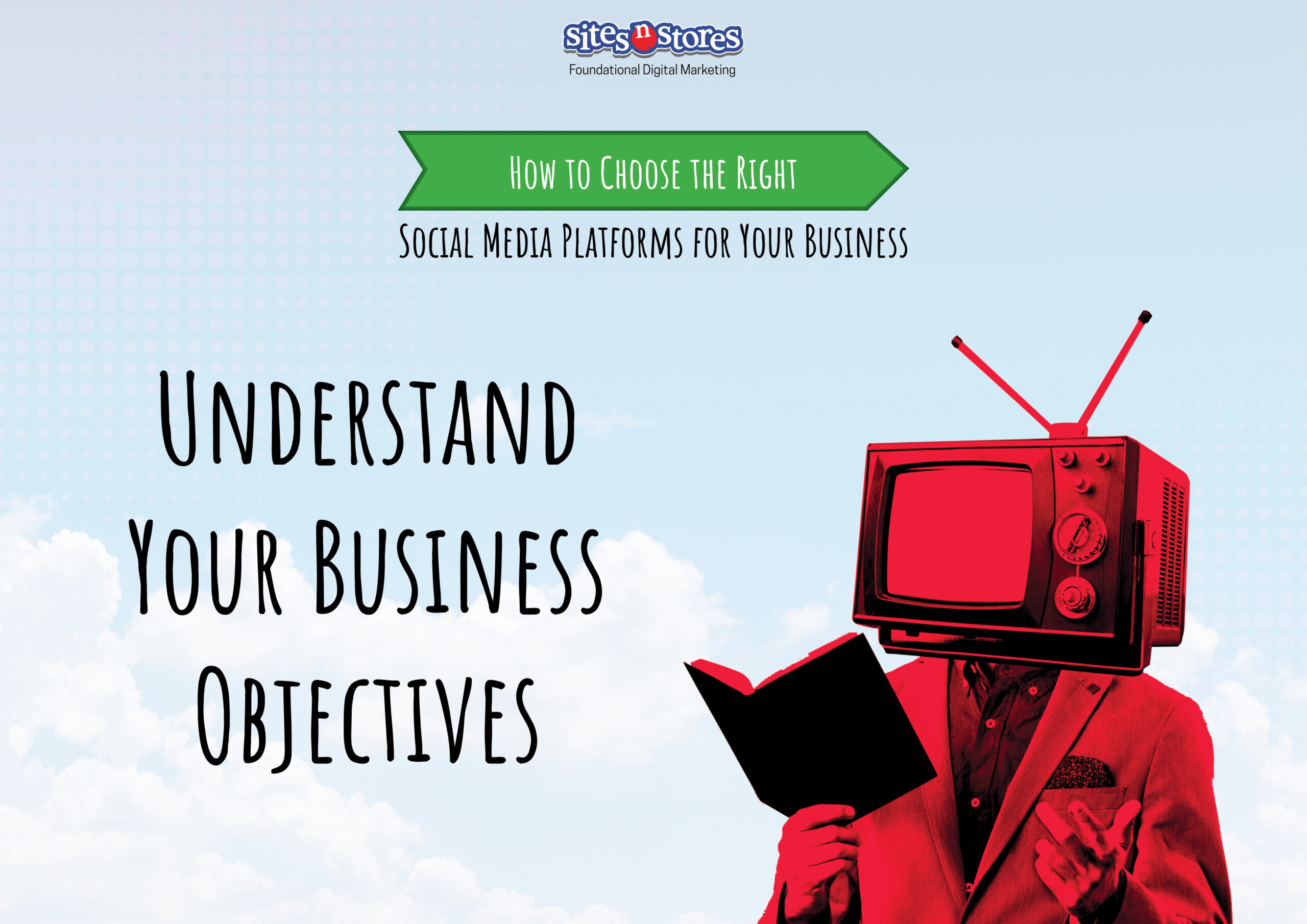
Understand Your Business Objectives
The critical first step is to crystallise your business objectives. Are you looking to increase your brand awareness, boost sales, or perhaps establish thought leadership in your niche? The choice of social media platforms must flow seamlessly from these goals to be truly effective, and to reach your target audience.
Defining Your Social Media Objectives
- Define Your Key Performance Indicators (KPIs): Whether it's the number of followers, website clicks, or direct messages, measurable KPIs give your objectives a clear benchmark.
- Choose Platform-Specific Goals: Each platform has its own strengths. For LinkedIn, it might be growing professional networks, while Instagram could be about showcasing products creatively.
Align Social Goals with Overall Business Goals: Your social media marketing strategy should be a cog in the larger business strategy, complementing and enhancing overall business objectives.
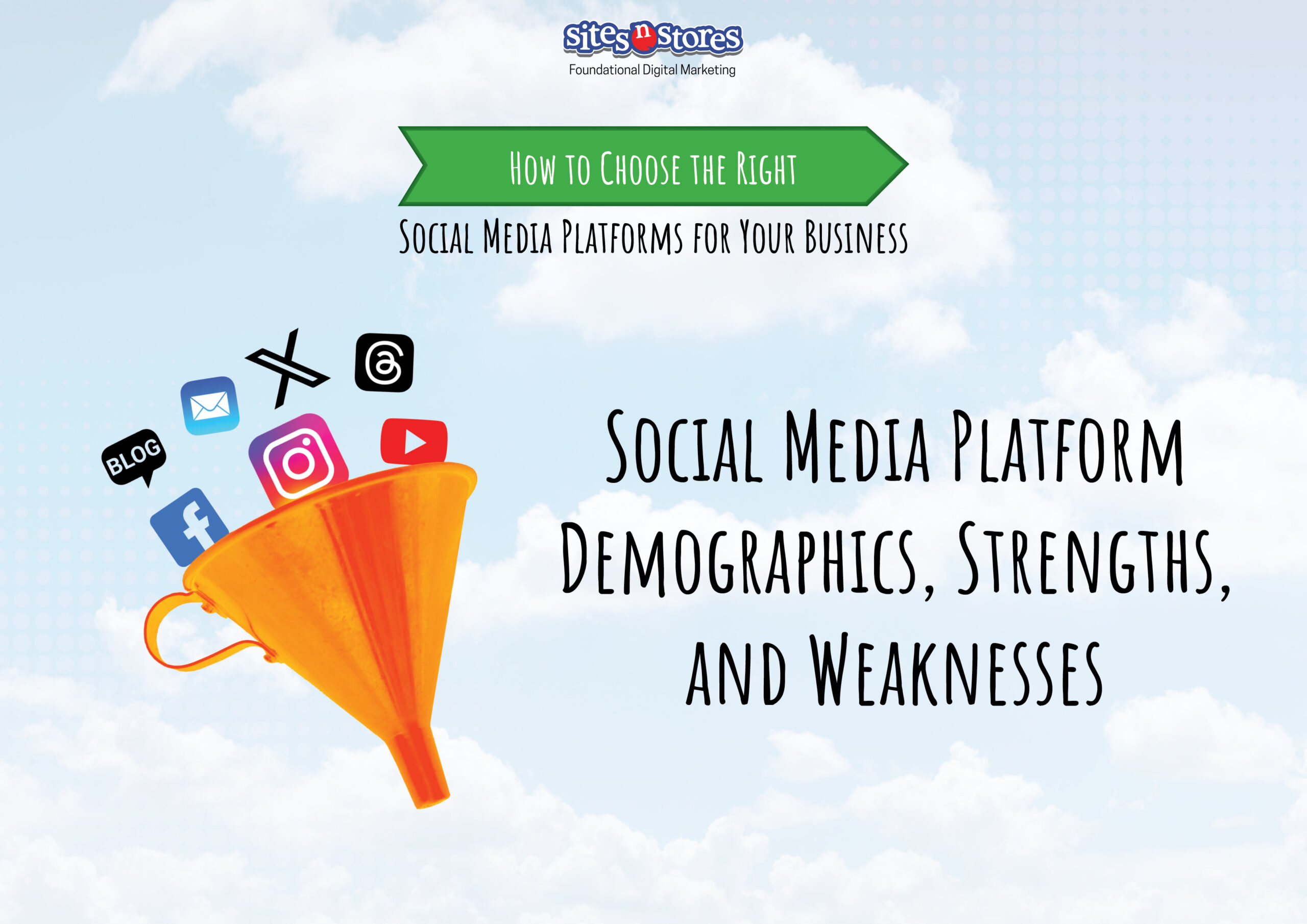
Social Media Platform Demographics, Strengths, and Weaknesses
Each social media platform possesses a unique profile of users. Understanding the demographics and nuances of each platform is crucial to decision-making.
Facebook – The Giant with Diversity
With the most extensive user base, Facebook is a melting pot of diverse age groups and interests. It's particularly effective for storytelling, community-building, and targeted advertising through its social media marketing tools. However, its organic reach has been declining, and the algorithm is a mysterious obstacle for many businesses.
Instagram – Visual Storytelling at Its Finest
One of the more popular social media platforms among younger audiences, Instagram thrives on visual content and storytelling. It's a powerhouse for brand discovery and engagement but demands a high-quality, consistent visual aesthetic.
X (Formerly Twitter) – The Platform for Dialogue
Famous for its real-time nature and public conversations, X (formerly Twitter) is ideal for businesses seeking to join industry chatter, manage customer service, and participate in trending topics. Yet, tweets have a short lifespan, and the platform is often dominated by news and entertainment outlets.
LinkedIn – The Professional's Network
LinkedIn caters to a more professionally-oriented demographic, making it a goldmine for B2B connections and content. Thought leadership content, job postings, and B2B advertising are strong suits, but the audience can be more discerning, expecting polished, industry-relevant content.
Pinterest – A Platform for Inspiration
Predominantly a platform for users seeking inspiration and tutorials, Pinterest is perfect for businesses with visually appealing products or services. The longevity of pins can lead to sustained traffic, but the platform is not as known for casual engagement.
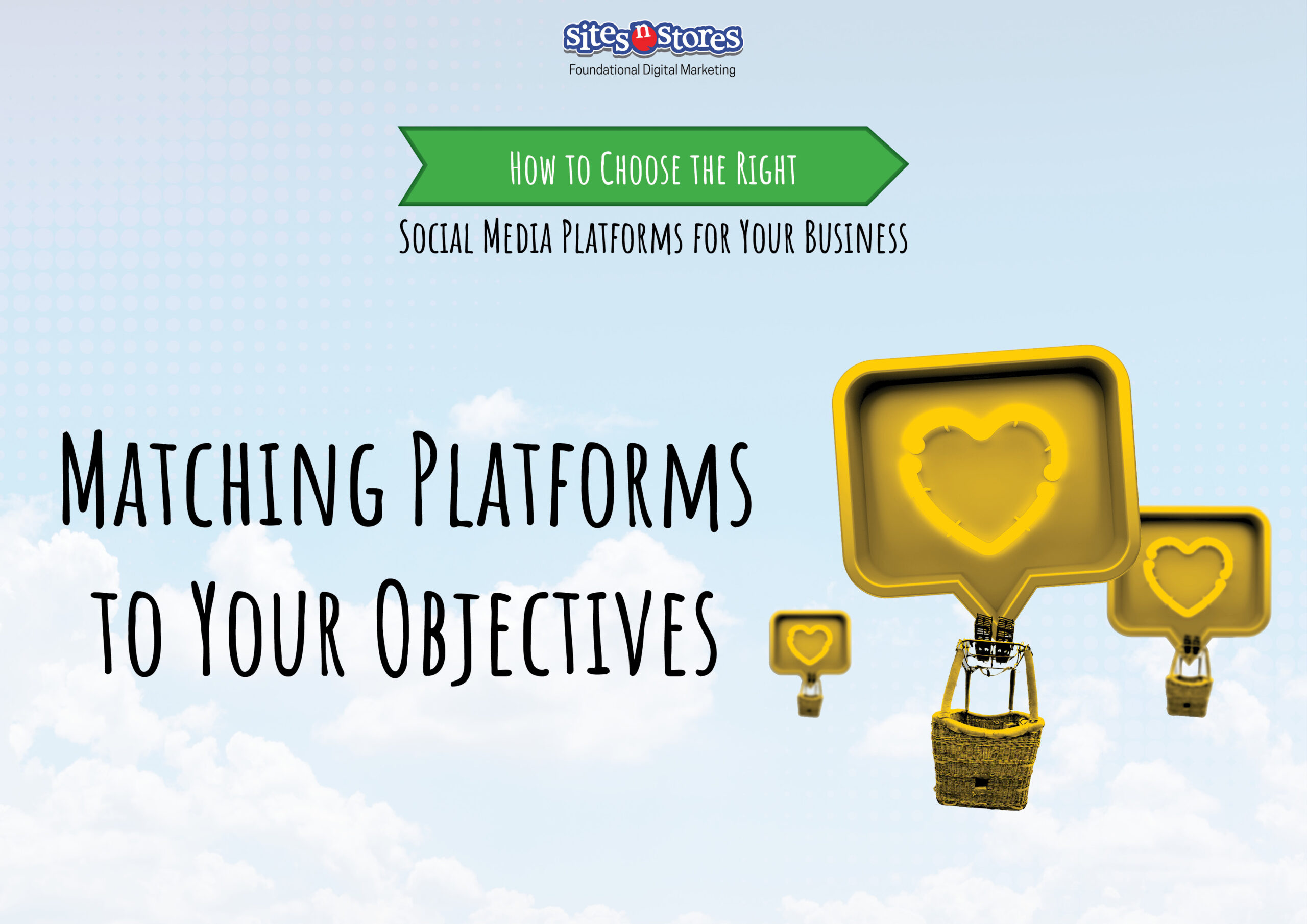
Matching Platforms to Your Objectives
Now that you have a handle on the landscape of each platform, the next step is to match the strengths of these platforms with your business objectives and social strategy.
Case Studies and Examples
Sourcing case studies and examples of businesses similar to yours can provide a tangible understanding and valuable insights into how different platforms can support various business objectives. For instance, a local bakery might benefit from the community-building features of Facebook and Instagram, while a law firm may find thought leadership avenues on LinkedIn.
Consider Immediate and Long-Term Goals
Which platforms will provide the quickest win for your immediate marketing strategy and objectives, and which align with long-term brand-building? Balancing short-term gains with strategic long-term investments is critical in selecting the platforms that fit your desired trajectory.
Evaluate Resources and Capabilities
Be honest about the resources you can allocate. If your strength lies in creating stunning visual content, it may lean you towards Instagram or Pinterest. However, if you have expertise in writing thought-provoking articles, LinkedIn or X's social network could be the front-runners.
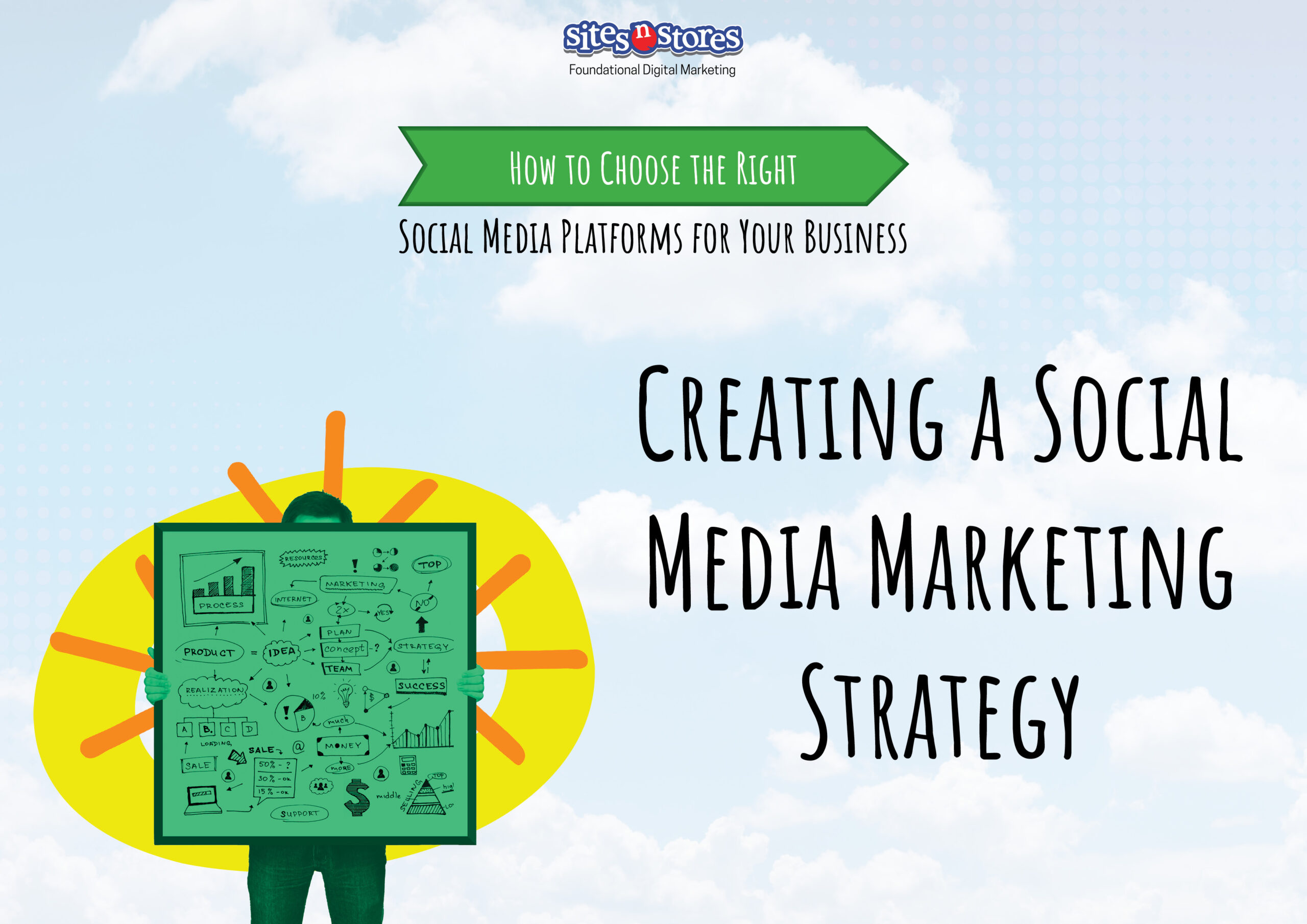
Creating a Social Media Marketing Strategy
If you get into social media without completely knowing your own strategy, it's not going to do you much good. With your selected platforms in mind, it's time for you to leverage their specific features to achieve your social media marketing goals.
Content Creation and Management
Develop a content strategy and plan that takes into account the type of content that resonates on each platform. You can implement a social media management tool to streamline scheduling and keep your content calendar organised.
Engagement and Community Building
Building a loyal community doesn’t happen overnight. Engaging with your audience in a timely and meaningful way can turn followers into advocates. Foster discussions, respond to messages, and create user-generated content campaigns to strengthen your community.
Measuring Success
Use platform-specific analytics and KPIs to measure the success of your social media efforts. This can range from post reach and engagement on Facebook to follower growth and hashtag performance on Instagram.
Selecting the right social media platforms for your business requires a blend of strategic thinking, self-awareness, and a touch of creativity. By aligning your core business objectives with the demographics, strengths, and weaknesses of each platform, you set the stage for a powerful social media presence that can grow your customer base and turn them into conversions!
You can leverage social media marketing to grow your business in many ways, from building your brand to engaging with customers. Use our guide above to find the ideal social media platform for your business and raise brand awareness today!
Still not sure on which is your perfect match? Or you don't know what to do next now that you've chosen a platform? You can get in touch with us by clicking here and we can help you find the best fit for you (and create supercharged social media campaigns and content that get you results!)



